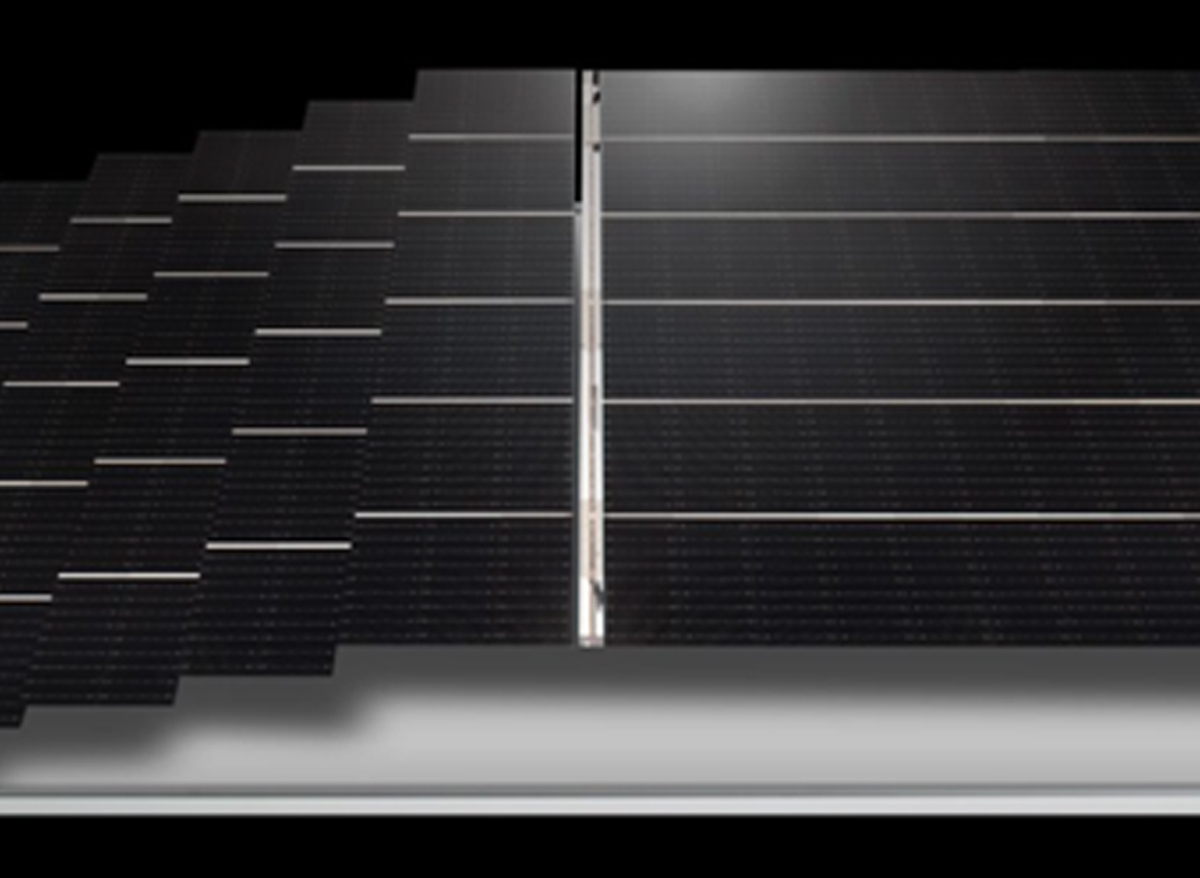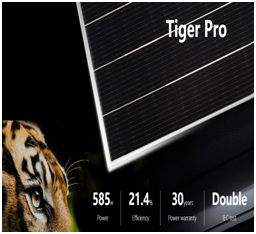
When buying a home or business solar panel system, many people are often left in the dark about what is out there. It gets too difficult when you don’t have access to unbiased information and reviews.
Fortunately, We, Makemysolar offer you an unbiased and in-depth review of all the top solar manufacturing companies in the market and one of them is Jinko Solar.
The company has been around since 2006, producing more than 8 million mono-crystalline modules globally which is quite a feat for a relatively new company. One of the main reasons why people trust the brand is because they have built its reputation on providing high-quality panels at an affordable price.
Their modules are tested rigorously before being sent out into the market. They hold numerous industry certifications to prove that they meet exact standards of performance. If this sounds like your ideal partner for your next home or business PV installation project, keep reading, we have prepared an in-depth Jinko panel review that should answer all your questions.
From its inception in 2006, the Jinko Corporation set out to meet the demand for solar panels in China and Malaysia. In 2022, the corporation got listed on the STAR Board of the Shanghai Stock Exchange. The result was this open door to international market growth.
According to reports from 2019, Jinko Solar is the largest producer of solar panels worldwide. Jinko delivered a stunning 14.2 GW of solar panels. That was 3.9 GW greater than JA Solar, which came in second. It is a tremendous 25% increase from 2018! It is worth noting that Jinko solar panels would be generally used in Australia.
According to the company, maintaining a team of 15,000 workers and several automation robots has been a key reason for its rapid growth. Their effectiveness appears due to their rigorous quality assurance, development, functional research testing, and reliability testing processes.
The quality of the company’s solar panels has been improving over time. Additionally, Jinko has received numerous awards for its solar panels, making them stand out from the competition in terms of quality. Their success can be attributed to their commitment to producing solar panels with superior performance, durability, and dependability.
So, First of all, MBB is the short name of Multi Busbar and Jinko uses 9 or more MBB in their N-Type Panel such as Jinko 370W N-Type Series. Similarly, SMMB is the Super Multi Busbar abbreviation, up to 16 MBB as in the Jinko 470W N-Type series.
It enhances module power production and dependability through better light trapping and current collecting.
It is a heat-tolerant/high-temperature resistance form of technology that reduces the danger of LID/LeTID (Solar Cell Degradation due to exposure to sunlight).
PID (Potential Induced Degradation) is caused by voltages as high as 1000V with high temperatures & humidity. Guaranteed Anti-PID performance is assured through the process of optimization of mass production and the regulation of materials.
The wind load (2400 Pascal) and snow load (5400 Pascal). have been certified to withstand
They hold numerous Industry Certifications like TÜV Rheinland Standard Certifications, PV Cycle, Clean Energy Council Member etc.
They can hold out against severe weather conditions, including heavy rain and strong winds & resistant to high salt mist & ammonia.
Jinko solar panels come with a power rating of 350W to 620W which means individual panels can produce 350 watts to 620 watts per hour in ideal conditions.
Jinko’s panels have a temperature coefficient of -0.30% / ℃ to -0.35% / ℃. It means it generates 0.30% to 0.35% less electricity for every 1°C that it gets hotter. (The baseline temperature for the measurement is 25°C.)
It means how much percentage of the sunlight a panel is capable of converting into usable electricity. Jinko Panels come with a high-efficiency rating of 19.8% or 21.9%, so you get the most bang for your buck when it comes to generating energy from the sun!
The company’s solar panels are available in three different forms: Mono P-type, Mono N-type and TOPCon (thin-film technology)
Jinko has its head office located in Sydney, as well as suppliers availability in Sydney, Melbourne, Brisbane, Adelaide, and Perth. Because of this, their panels are now more readily available across the nation, and their customer service has also increased.
For residential, commercial, and other solar installations, Jinko, which makes up the bulk of the world’s rooftop Solar manufacturing businesses, offers a wide selection of solar modules. The corporation may also alter the sizes and forms of solar panels to suit different goals for operations on a larger MW scale. Jinko Panels are available in four series in Australia: Tiger Neo Series, Tiger Pro Series, Tiger Series & Cheetah Series.
The Cheetah series was one of the first panels to be named after a large animal, replacing the dated Eagle series. The cheetah panels are made out of three different types of solar cells: cadmium telluride (CdTe), amorphous silicon (a-Si), and polycrystalline silicon (PCS). The cheetah panels have a maximum speed of 21 megawatts per hour (MW/h).
The cheetah panels are also the world’s most durable solar panels. The cheetah panels can withstand a temperature of up to 430 degrees Fahrenheit. The JKM330M-60H version of the Cheetah panel was the most preferred in Australia in 2020, according to Formby data. Jinko Cheetah panels received excellent reviews from almost all solar installers for striking a good balance between quality and price.


The tiger neo series 2022 Jinko solar panel is a new and improved model of solar panel, which utilizes TOPcon solar cell technology. Due to their greater effectiveness than typical Mono PERC panels, TOPCon modules, that rely on a high-purity N-type cell circuit, are increasingly becoming the growing modern technological standards.
The Tiger Neo Series 2022 is a high-efficiency panel with a maximum power output of 22.5 watts. This panel is designed for use in areas that have high sunlight exposure, and it is also resistant to weathering and corrosion.
Tiger Neo series panels range in size from 460W to 620W, making them perfect for both large solar farms and domestic applications. These panels’ maximum efficiency is 22.3% because of the high-density cell structure and high-performance N-type TOPCon cells. To accommodate a range of operations, the NEO series is available in a number of sizes, namely 54, 60, 72, and 78 cell layouts.
The second version of the Tiger series, the Tiger Pro series, arrived in 2020 with an unmatched power rating of over 580W. Then, at the SNEC PV Power Exhibition in China, JinkoSolar presented a 610W version of the Tiger Pro panel, ranking it as one of the most effective solar panels available today. As productivity and cell efficiency increased, the initial launch’s 530W was eventually upgraded to 580W and then 600W+ as a typical procedure adopted by the top manufacturers. Improved temperature coefficient, shorter installation times, lower installation costs, and slow decomposition rates are a few of the main advantages of the Tiger pro series.
The Tiger Pro Series 2020 also features a new, more durable frame. This frame is made from a lightweight and durable plastic material that is resistant to corrosion and weathering. In addition, the structure is also more compact and easier to transport. This makes the Tiger Pro Series 2020 a more versatile solar panel series, capable of being used in a variety of locations.
Overall, the 2020 Tiger Pro Series of solar panels is a significant upgrade over the previous models. It features a higher efficiency rating and a more durable frame, making it a versatile and high-quality solar panel series


The extremely effective Tiger series contains some of the most recent developments in Solar PV technologies, including larger cells, multi-busbar, and Jinko’s “Tiling Ribbon,” or TR. The panels in this series range in power from 370W to 470W. In order to reduce the distance between them and increase overall area, which increases productivity, tiling ribbon is a production technique in which the panel are somewhat overlapping, similar to shingled cells. Additionally, this offers the advantage of lowering costs and virtually removing the requirement for lead-tainted soldering. Higher performance, more dependability, and of course increased efficiency are the results of these brilliant inventions.
The only thing holding you back from getting a solar power system for your home is the cost of the solar panel. If you want to find out the price of a Jinko solar panel, you have come to the right place.
Solar panels cost per watt. Jinko panels at a present may cost between 45 cents per watt & 52 cents per watt which is a quite competitive price compared to the cost of others in the market.
Among the leading Tier 1 solar brands, Jinko Solar can be considered a ‘value’ choice. Their solar panels usually work out to be $0.25–$0.50 cheaper than more premium rivals (e.g. SunPower and Panasonic).
Bear in mind that many factors can affect solar panel installation costs, so the figures above are only indicative to the panels. For a more detailed discussion of costs, check out our solar panel cost page.
In the last five years of testing, Jinko Solar has performed exceptionally well, receiving a “Top performer” grade each year to be ranked as the highest-performing module in the group with no severe degradation or failures from one of the world’s top independent solar module testing and performance services PVEL, a German-based testing facility, which produces the annual PV Module Reliability Scorecard Report.
Based on ongoing feedback from solar installers and other industry experts, Jinko Solar has a solid reputation for reliability. Jinko Solar Panels successfully balances affordability with a reliable and well-known brand.
Solar panel efficiency is a metric given as a percentage of the total amount of solar energy (also called irradiance) hitting photovoltaic (PV) cells that are actually converted into usable electricity. Efficiency is a common way to compare the performance of solar panels. Jinko Panels new model Jinko Tiger NEO N type TOPCon technology panel has 22% module efficiency.
Jinko solar panels have 15 to 25 years of product warranty and 25 to 30 years of performance warranty which means they have a very long lifespan and will not break down easily and they will be able to produce energy even after 25 years of use.
Bankability- Tier 1 rating given by Bloomberg New Energy Finance based on a methodology where companies must have provided own-brand, own manufactured products to at least six different projects which have been financed by six other commercial banks.
Jinko Solar Panels, in MakeMySolar’s opinion, find a solid balance between a reliable and recognized brand and affordability. Jinko provides a wide selection of panels, including the reasonably priced Cheetah Series. Jinko Solar is undoubtedly one of the better options for individuals searching for dependable, affordable solar panels due to its strong market position and track record of success. You can’t go wrong with Jinko, in our opinion, especially if you choose the Tiger series of panels, which has been a highly popular option for residential and commercial installations in Australia for more than 10 years. We have come to this decision after carefully reviewing the company’s products, customer service, and warranty.
If you’re interested in solar energy, make sure to Contact Us right away. Our knowledgeable professionals can provide you with a quote based on your specific needs. Get started today, and enjoy savings on your energy bill for years to come!
Receive a personalized proposal within 24 hours

Receive a personalized proposal within 24 hours

Receive a personalized proposal within 24 hours

Receive a personalized proposal within 24 hours